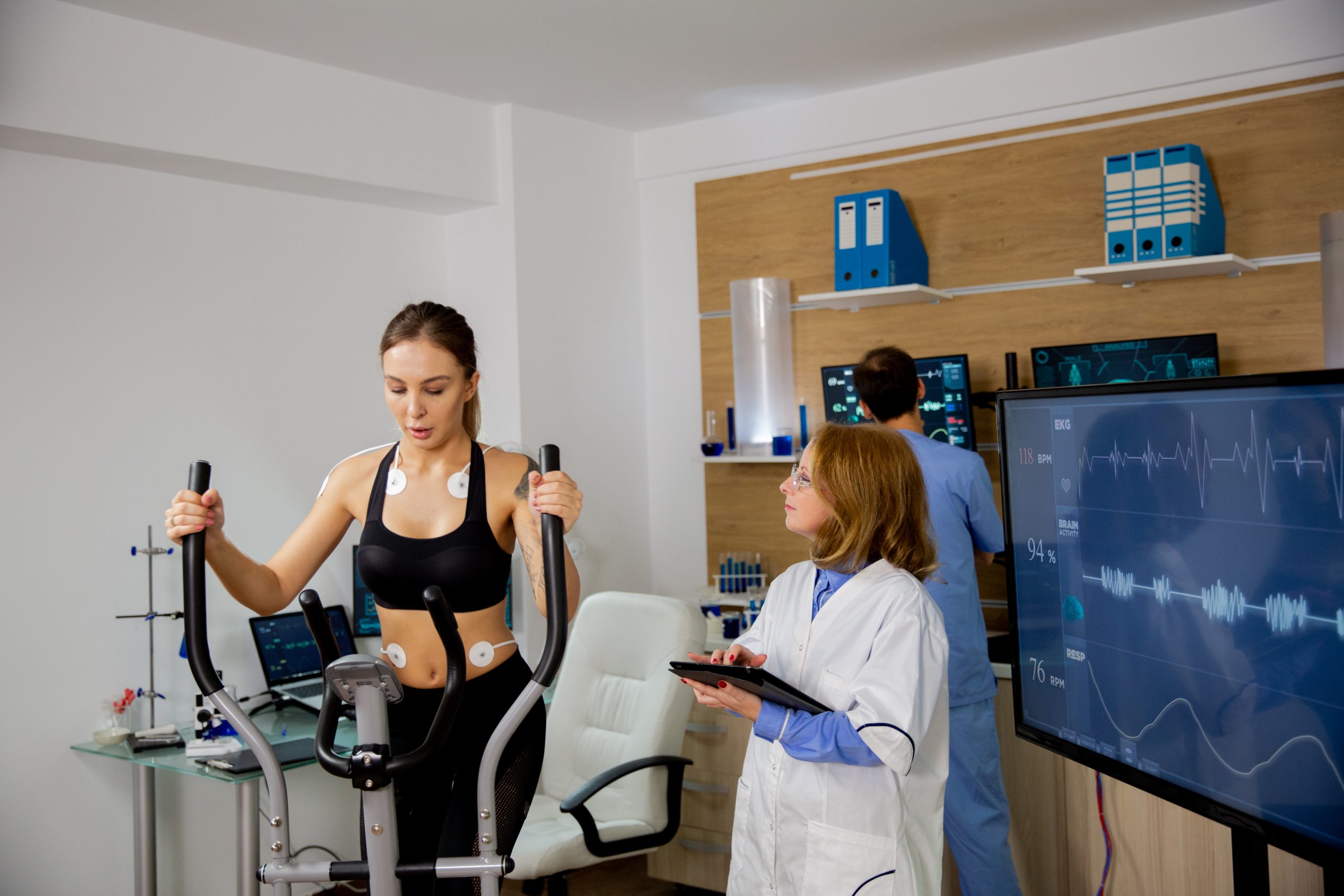

The exercise stress test, often done with an electrocardiogram (ECG), is a common medical test. It is usually used to check for cardiovascular risks, but a recent Mayo Clinic study found it can also predict non-heart-related causes of death, like cancer.
This study’s results are in Mayo Clinic Proceedings.
Although exercise tests are ideally used to check for coronary artery disease and other common cardiovascular risks, a recent Mayo Clinic study showed that abnormal results, like poor aerobic capacity, can also predict deaths that are not related to the heart, such as cancer, along with heart-related deaths.
The exercise stress test is a simple, non-invasive procedure that is widely accessible and offers valuable diagnostic details. Besides the ECG, this test provides information about aerobic capacity, heart rate recovery, and the chronotropic index. This index measures heart rate during exercise and takes into account a person’s age, resting heart rate, and fitness level.
“In our exercise testing cohort, non-cardiovascular deaths were more frequently observed than cardiovascular deaths,” says Thomas Allison, Ph.D., M.P.H., director of Mayo Clinic’s Integrated Stress Testing Center and the study’s senior author.
“Though this was a cardiac stress test, we found that cancer was the leading cause of death, at 38%, whereas only 19% of deaths were cardiovascular. Exercise test results including low exercise capacity, low peak heart rate, and a slow recovery of the heart rate after exercise test were associated with increased mortality.”
The study involved 13,382 patients who were healthy and had no cardiovascular risks or serious health issues. They did exercise tests at Mayo Clinic between 1993 and 2010, and monitored for about 12.7 years.
The results show that doctors should pay attention to more than just the ECG. The focus should also be on if the exercise test shows low aerobic capacity, low chronotropic index, or slow heart rate recovery. According to Dr. Allison, even if the ECG looks fine, patients should be encouraged to exercise more if they have these unusual results.
more recommended stories
 Pediatric Crohn’s Disease Microbial Signature Identified
Pediatric Crohn’s Disease Microbial Signature IdentifiedKey Points at a Glance NYU.
 Nanovaccine Design Boosts Immune Attack on HPV Tumors
Nanovaccine Design Boosts Immune Attack on HPV TumorsKey Highlights Reconfiguring peptide orientation significantly.
 High-Fat Diets Cause Damage to Metabolic Health
High-Fat Diets Cause Damage to Metabolic HealthKey Points Takeaways High-fat and ketogenic.
 Texas Medical Board Releases Abortion Training for Physicians
Texas Medical Board Releases Abortion Training for PhysiciansKey Takeaways Texas Medical Board has.
 Acute Ischemic Stroke: New Evidence for Neuroprotection
Acute Ischemic Stroke: New Evidence for NeuroprotectionKey Highlights A Phase III clinical.
 Statins Rarely Cause Side Effects, Large Trials Show
Statins Rarely Cause Side Effects, Large Trials ShowKey Points at a Glance Large.
 Anxiety Reduction and Emotional Support on Social Media
Anxiety Reduction and Emotional Support on Social MediaKey Summary Anxiety commonly begins in.
 Liquid Biopsy Measures Epigenetic Instability in Cancer
Liquid Biopsy Measures Epigenetic Instability in CancerKey Takeaways Johns Hopkins researchers developed.
 Human Antibody Drug Response Prediction Gets an Upgrade
Human Antibody Drug Response Prediction Gets an UpgradeKey Takeaways A new humanized antibody.
 Pancreatic Cancer Research: Triple-Drug Therapy Success
Pancreatic Cancer Research: Triple-Drug Therapy SuccessKey Summary Spanish researchers report complete.

Leave a Comment